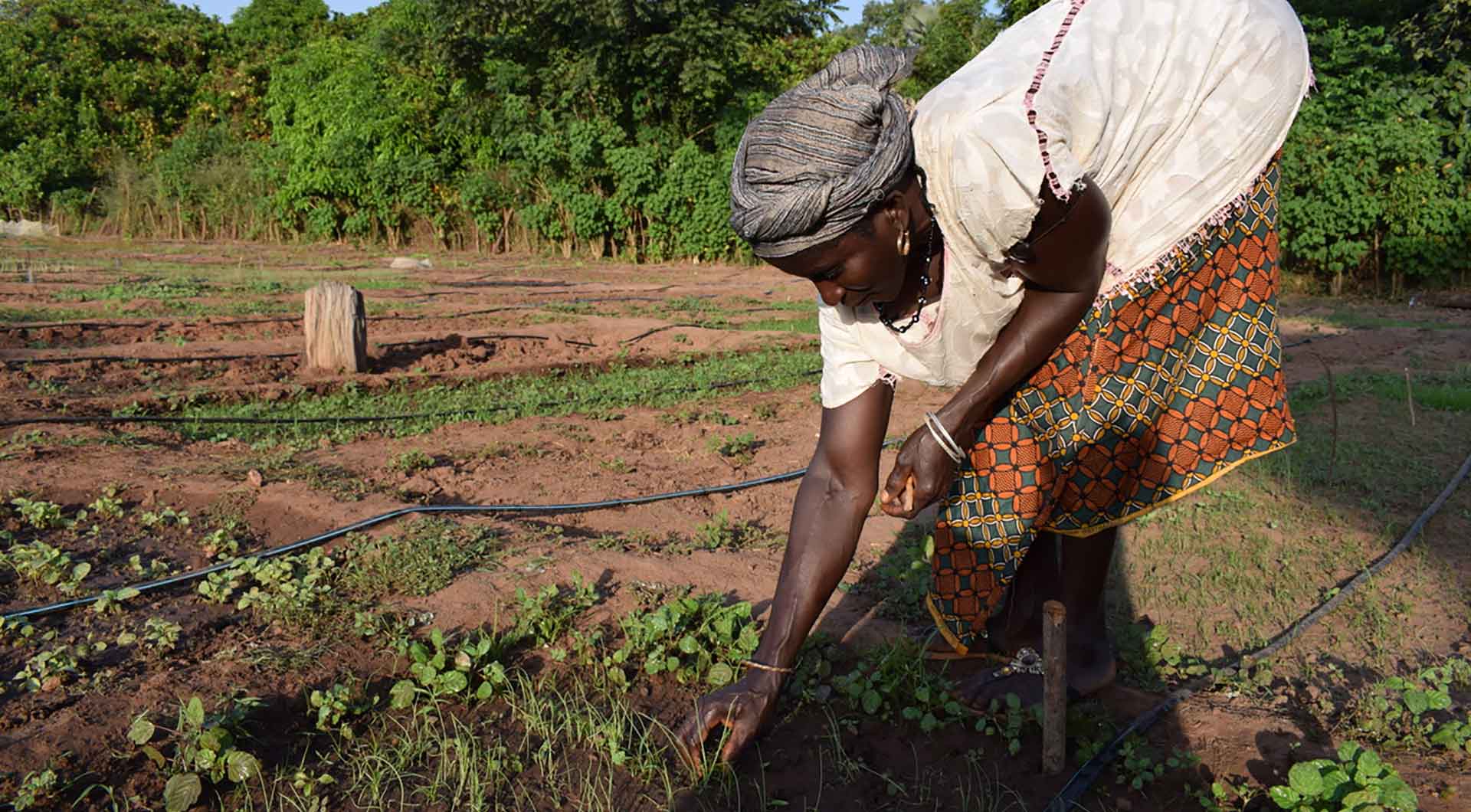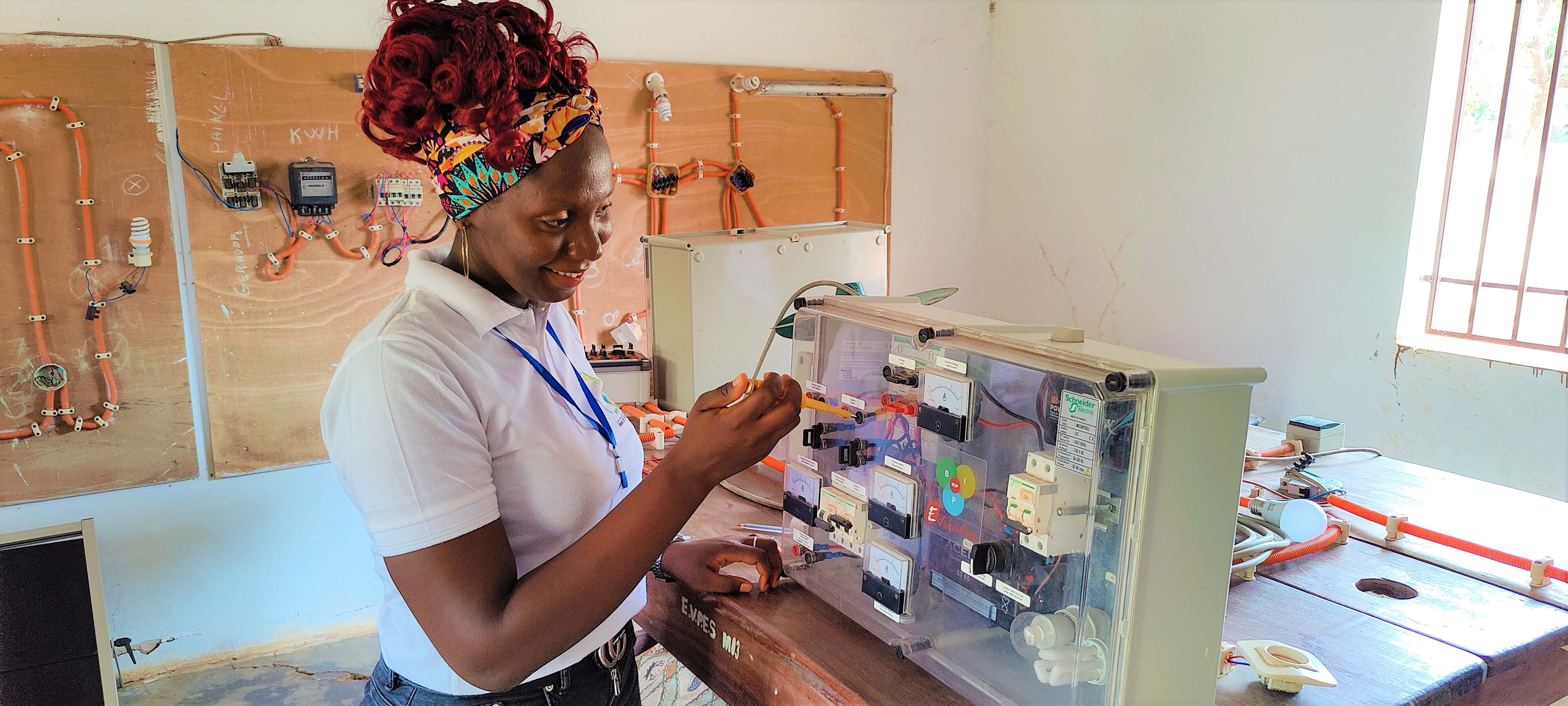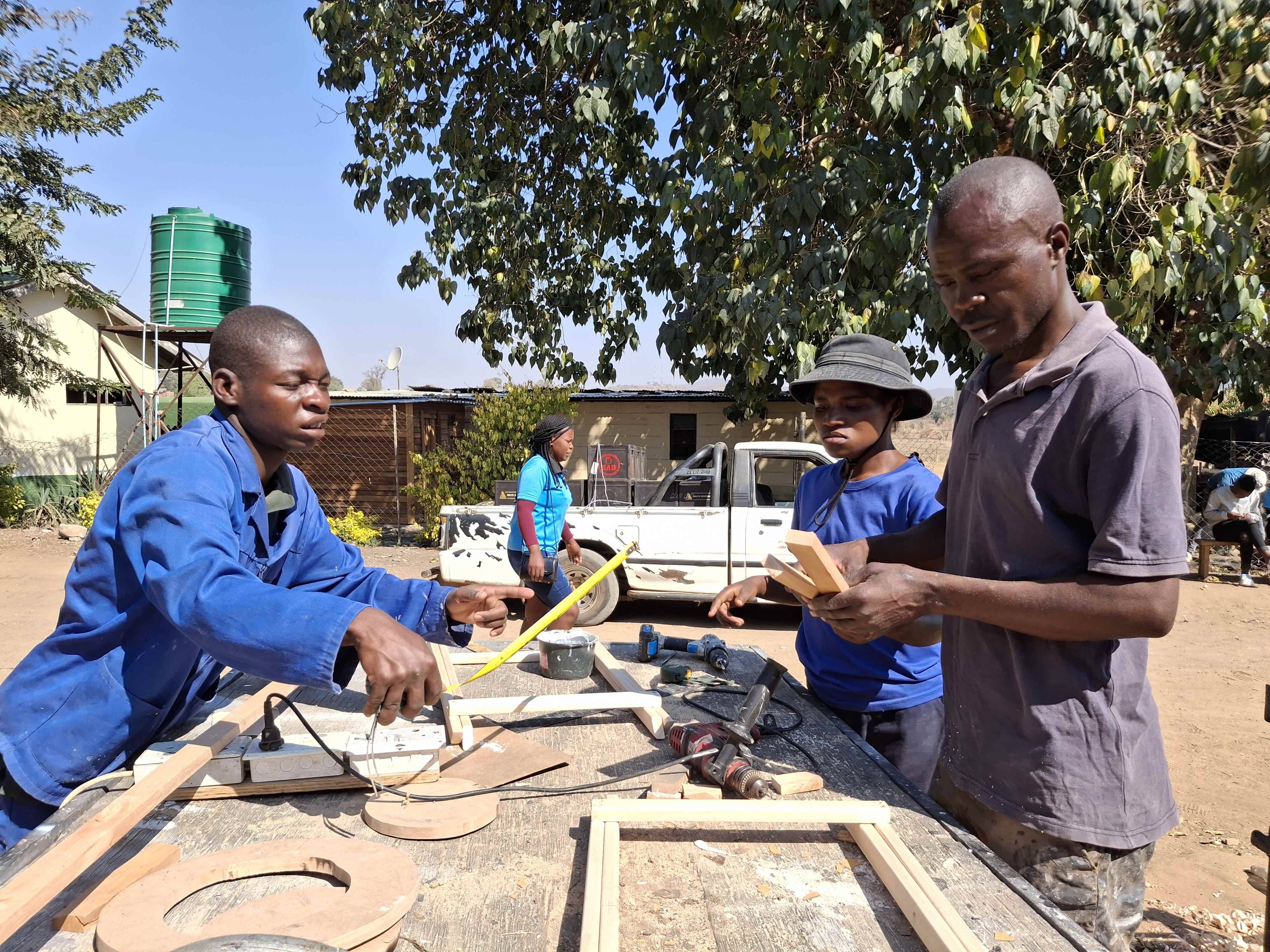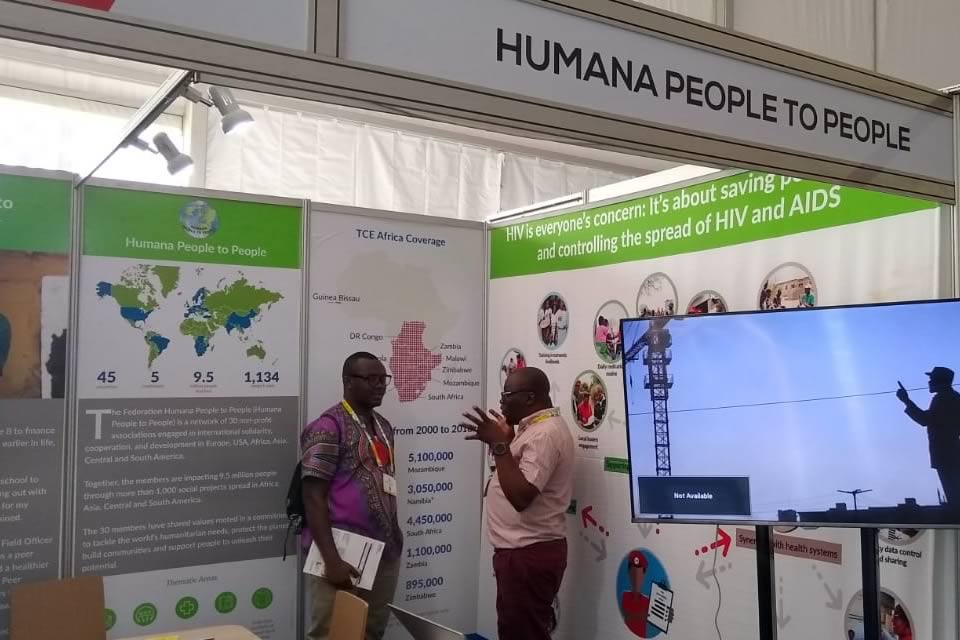
A new report launched by the Africa Skills Revolution initiative outlines the importance of placing youth at the center of Africa’s Technical and Vocational Education and Training (TVET) transformation. At a time when Africa’s youth population is projected to double to over 830 million by 2050, the findings of a pan-African survey of young people aged 15 to 30 reveal powerful insights into how youth view vocational education and its role in reshaping the continent’s future.

This groundbreaking report shows that young people are not only engaging with TVET but also seeking to co-design the future of skills in Africa. It has been developed by AUDA-NEPAD and Humana People to People with support from The Humana People to People Educational and Training Foundation and the AUC and AUDA-NEPAD’s Skills Initiative For Africa, supported by GIZ.
More than 80% of youth surveyed believe they have a critical role to play in advocating for and improving TVET systems. Rather than passive recipients of educational reform, Africa’s youth see themselves as co-architects of skills strategies, helping to make TVET competitive with traditional higher education pathways.
The report comes as young people’s goals increasingly match Africa’s priorities, as emphasised by the African Union’s Agenda 2063 and its Continental TVET Strategy, which calls for education and training systems to drive prosperity, job creation, and inclusive development. Young Africans appear firmly aligned with this vision: four in five (80%) young people who have experienced TVET believe it is vital to their country’s socio-economic development and nearly three-quarters (72%) say TVET aligns with labor market needs.
A significant majority believe the future of vocational training must also embrace entrepreneurship (70%),showing TVET is about job creation as well as employability. And young people are looking to the economy of the future, wanting skills such as digital literacy (68%), soft skills (66%), and green skills (60%) from TVET programmes, to help them contribute and flourish in a digital era.

TVET is seen as a powerful pathway to employment, purpose, and empowerment. Youth report enrolling in TVET programs not just for jobs, but for a deeper sense of impact. While 42% cite job relevance as a key driver, others highlight the importance of hands-on learning (41%) and societal contribution (38%). Critically, 86% of respondents would recommend TVET to their peers, and nearly two-thirds (62%) feel highly likely to succeed in their careers after completing vocational training.
Despite this optimism, the report also highlights persistent barriers that must be urgently addressed. Financial constraints (72%), lack of information (54%), and rural inaccessibility (38%) continue to limit access to TVET, particularly for marginalised and underserved groups. Young people are calling for increased financial aid, scholarships, job placement support, and opportunities for real-world experience to support their transition into the workforce.
Mr. Symerre Grey-Johnson, Director of Human Capital and Institutional Development (HCID) at AUDA-NEPADcommented “TVET holds a pivotal role in bridging the persistent skills gap that significantly limits the employability of young people across Africa. We must make intentional, deliberate and strategic efforts to expand and enhance TVET programs, which will lead to reduction in youth unemployment. This report and its youth-centric approach serves as a powerful testament to the transformative potential of skills-based education when it is properly aligned with the needs of the economy”. He continued, that he was clear that “such benefits do not materialise automatically; they require sustained commitment from all stakeholders and effective implementation and constant adaptation to the dynamic demands of the labour market and to the changing needs of the economy of the various African nations”.
Snorre Westgaard, Chairman of Humana People to People, added, “Vocational Education is a springboard to opportunity for young people. TVET empowers youth with practical, in-demand skills to get access to jobs that need their skills, capacities and drive. Beyond preparing individuals for existing jobs, Vocational Training is also nurturing the creativity and entrepreneurial mindset important for responding to the challenges of their communities. Trained youth can take a lead to address some of the most pressing needs in communities caused by inequity or climate change, often as entrepreneurs essential for building new businesses and driving sustainable development”.
Célio Monteiro Jose, a young entrepreneur from Mozambique and winner of the 2024 Africa Skills Revolution competition said, “Growing up in Mozambique, I was deeply troubled by the effects of deforestation and environmental degradation in my community. I wanted to show that farming could be both productive and sustainable. Through TVET, I learned climate-smart agricultural techniques, which I now use to train local farmers in practices that preserve the environment while boosting yields. TVET also equipped me with the tools to develop solutions tailored to my community’s needs, enabling me to make a meaningful difference in their lives. I want to see this type of skills training available to more young people in my country and beyond. We young people can shape the future of this continent if supported with the right education.”
In response, the Africa Skills Revolution initiative is championing a long-term strategy that centres youth not just in dialogue, but in decision-making. It is calling on African governments, international development partners, donors, and TVET providers to listen to youth voices, remove financial and structural barriers, modernize training curricula, and invest in programs that prepare youth for the jobs of the future.
This report is a clear mandate for action. Africa’s youth are ready to lead, innovate, and co-create a new skills agenda for the continent, one that drives inclusive growth, economic resilience, and sustainable development. As the Africa Skills Revolution gains momentum, this report marks a defining moment in shifting TVET from a policy discussion to a people-powered movement, by placing young people at the centre of skills development strategies, creating more responsive, inclusive, and impactful training programs across the African continent.
To read the full report, please click and visit: https://www.africaskillsrevolution.org/


